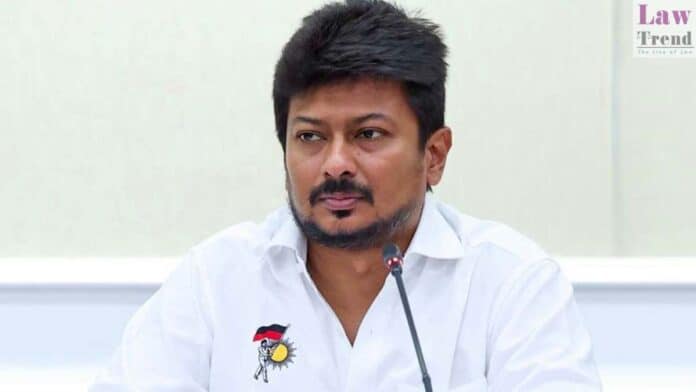The Madras High Court Judge on Wednesday said that Tamil Nadu Minister Udhayanidhi Stalin, Hindu Religious and Charitable Endowments Minister P. K. Sekarbabu and MP A. Raja’s remarks against Sanatana Dharma were perverse and divisive, but refused quo warranto against them.
Justice Anita Sumanth said, “The statements equating Sanatana Dharma to HIV, AIDS, dengue and malaria, which need to be eradicated are perverse, divisive and contrary to Constitutional principles and ideas and tantamount to gross disinformation.”
However, the Judge refused to issue a quo warranto against Udhayanidhi Stalin, P. K. Sekarbabu and A. Raja, in connection with the case.

Justice Anita Sumanth held that the relief sought by three different writ petitioners was premature, as multiple First Information Reports (FIRs) regarding the row were pending before different police stations. However, the judge said that there had been no conviction so far and hence writs of quo warranto could not be issued at the present stage.
She said that there may be ideological differences between persons holding power but the differences were expected to be based on a thorough understanding of the system being critiqued.
She said that such criticism must be constructive and not destructive and further said that the statements made by sitting Ministers must be factually accurate.
The judge said that those in power must propound only one morality which was the one propagated by the constitution.
Hindu Munnani office-bearers T. Manohar, J. Kishore Kumar and V.P. Jayakumar had filed the three writ petitions, making it clear that they had filed the cases in their individual capacity and not as office-bearers of the organization.
The petitioners also claimed that elected legislators could not act against Sanatana Dharma.
Also Read
The first petitioner said that Sanatana Dharma was synonymous with Hinduism and added that Udhayanidhi Stalin ought not to have called for the annihilation of Sanatana Dharma the in the ‘Sanatana Dharma Eradication Conference’ organised by the Tamil Nadu Progressive Writers Artists Association in Chennai, on September 2, 2023.
The second petitioner took objection to the participation of P. K. Sekarbabu in the conference even though the Minister did not deliver any speech on the subject. The third petitioner stated that as A. Raja endorsed the views of Udhayanidhi Stalin, he could not continue as a legislator.
However, Udhayanidhi Stalin, PK Sekar Babu and A. Raja questioned the maintainability of the writ petitions and contended that no writ of quo warranto that questioned the authority under which they were continuing as legislators, could be issued, for the reasons stated by the petitioners in their affidavits. (IANS)







